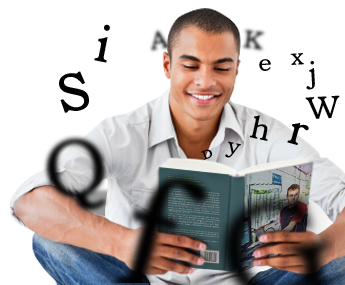Section outline
-
 This area has activities for students with a lower level of English. It is also a good area for review for everyone!
This area has activities for students with a lower level of English. It is also a good area for review for everyone!After you finish each activity, tick the box on the right - this is so you can remember which ones you have finished.
-
- 15 nonfiction read-along books
- Listen and Read activities tell their stories through words, images, and sound
-
- a large choice of stories at different levels from Marshall Adult Education (USA)
- pre-reading questions and vocabulary
- listen and read along
- questions to check your understanding
-
- follow the love story! 22 Chapters - True/False comprehension questions for each chapter
- also has ideas for speaking practice (practise with your classmates)
-
- A Special Christmas Present
- Two Sisters and the Cat
-
- 3 types of activities - comprehension, recreate story and summarise the story
-
-
Sometimes you write in CAPITAL or big letters. Sometimes you write in lower case, or small letters.
-
You use capital letters at the beginning of sentences and for the word ‘I’. You also use capital letters for proper nouns, such as days and months and names of people or places.
-
Questions often start with key question words like what, where, when, which, why and how. A question mark is used at the end of the question.
-
There are times when you need to be able to read and spell dates and numbers.
-
-
Short sentences can be useful for things like instructions. Sometimes you need to write in longer sentences to help make your writing flow and be more interesting.
-
You can sometimes work out the meaning of an unfamiliar word by reading the rest of the sentence.
-
A dictionary is useful to help you find the meaning of a word or check the spelling of a word.
-
Scanning a piece of text helps you to find information quickly. It also means that you don’t have to read every word.
-
Proof-reading means reading through your writing carefully to check for mistakes. Proof-reading will help you to make sure you have written exactly what you meant to say.
-
Some instructions tell you what you must do. Other instructions tell you what you must not do
-
Forms are used for recording particular information. You need to understand the words on forms in order to give the correct personal information.
-
Some long words are made up of several parts - main part = root / prefix = before the root / suffix = after the root
-